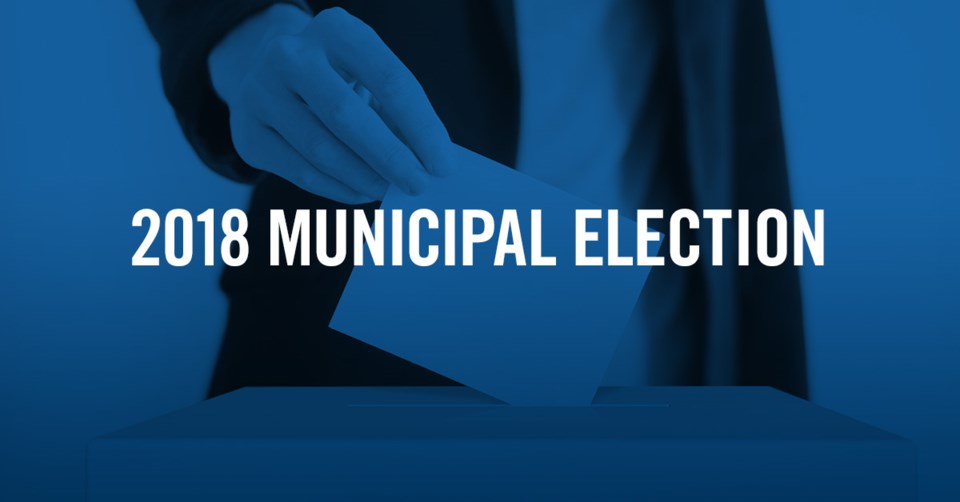Voters can begin casting their ballots for the Collingwood municipal election in seven days at 10 a.m. on Oct. 12.
CollingwoodToday has been amassing a collection of articles related to the Collingwood Municipal Election, including candidate profiles, coverage of the all-candidates meetings, and information about online and telephone voting as well as important dates. You can find all of those articles in one place here, or by clicking on the election tab of the home page at CollingwoodToday.ca.
Meanwhile, here’s some facts designed to provide voters with ways of becoming informed about their choices in this election.
Voting
Those eligible to vote are able to vote for one mayor, one deputy mayor, up to seven councillors, and a school board trustee. To check if you’re eligible to vote, click here. Voting will take place online or by phone this year. You can find more information and how-to steps on the process here.
All-candidates meetings
If you missed the all-candidates meeting, you can catch the video of the mayor and deputy mayor debate via RogersTV here, and the councillor candidates meeting here. Rogers has also done a video that includes each candidate delivering a video message about themselves and their campaign platform. You can watch that here.
How council makes a decision
Each member of council, including the mayor and deputy mayor, receives one vote in a decision of council. A motion is passed when it receives support greater than 50 per cent. Members of the public are invited to speak without notice at council’s standing committee meetings. The public may make a deputation at a regular council meeting with prior written notice to the town clerk. There are occasionally statutory public meetings typically regarding an application to change the zoning of a property or request an exception to the official plan rules for a property. At those meetings, any member of the public can speak without prior written notice. When there is a public meeting, council will not be voting on the subject matter until at least the next regular meeting, sometimes further into the future.
Taxes and the 2019 budget
Once a new council is elected, one of the first and largest projects they will undertake is to approve a budget for the town for 2019. The town’s senior staff, including all department heads, will work to present council with recommendations and a suggested budget. Council will hear from department heads and will make decisions for spending in 2019, which is when they will also set the tax rate for next year. The town collects taxes for municipal use as well as for Simcoe County and the local school boards.
Council will be required to make decisions on the town’s operating budget, which is the money allocated to running and maintaining the town as it currently exists. An operating budget pays for the town’s programs and services and the staff required to run them. It will also cover debt repayments.
Some town programs and services include: roads, sidewalks, snow removal, street sweeping, town-owned recreation facilities like Centennial Aquatic Centre, local baseball diamonds, dog parks, local arenas, the skateboard park, town hall and several parks and trails in town. The town also has several bylaws, and the operating budget helps cover the cost of enforcing those bylaws.
A capital budget is money used for projects like infrastructure (new water mains, new roads) and facilities (recreation centre, pumping station). The capital budget also receives revenue via development charges, which are fees charged to those who are building new subdivisions. The idea behind development charges is for growth-related projects to cover the costs related to growing town services and infrastructure to meet the demand caused by the increase in homes and residents.
Ward System
Collingwood does not currently have a ward system for its town council. All councillors are general councillors not elected to represent specific geographical areas. It’s called an at-large representation system.
A ward system, like Clearview Township, operates by sectioning the town into geographic areas and having one councillor from each area on council to represent the area included in their ward boundaries.
Towns that have switched to or from a ward system use a town-wide referendum via secret ballot to make the change. That referendum has to be called by a sitting council.
Development
Collingwood has two official documents that direct development including the Official Plan and the Zoning Bylaw. At the very top of the ladder is the Official Plan, which directs physical growth in town. The plan includes a map of Collingwood and designates areas of Collingwood for various types of land uses including residential, green space, commercial, industrial and so on. The Official Plan is shaped, in part, by mandates from the province for certain levels of density when it comes to development within town boundaries. Any changes to the plan must be approved by Simcoe County council.
The Official Plan works in conjunction with the town’s Comprehensive Zoning Bylaw. This document is used to further regulate the land uses set out in the official plan down to details such as density of units, building height, and the number of feet a building must be set back from a property line. Any amendments to the zoning bylaw are decided by council after a public meeting and required public notice.
Questions?Do you have any questions about the role of council or a decision on the horizon for the next council? Let us know with a comment or email to [email protected].



